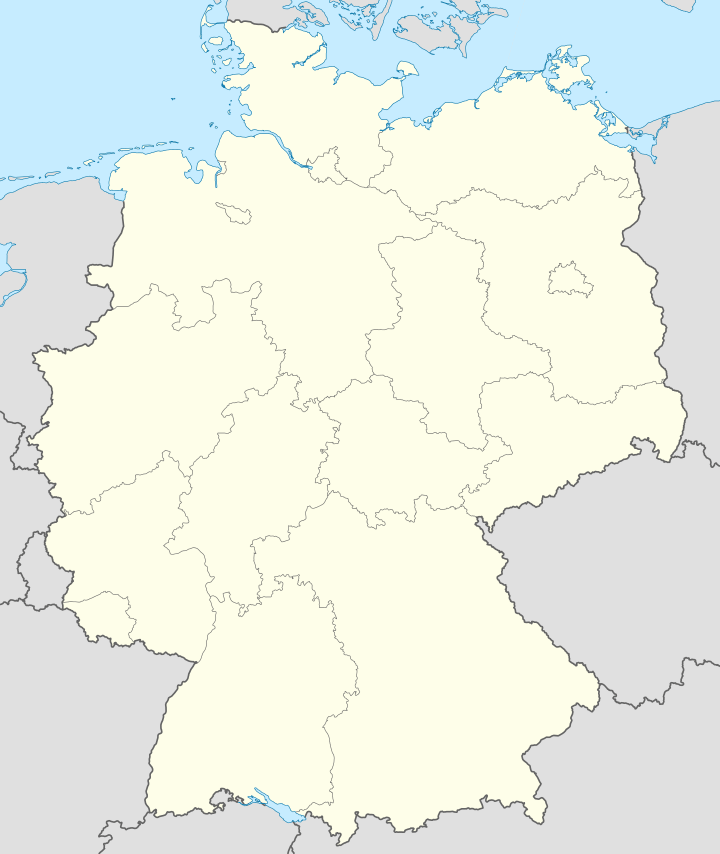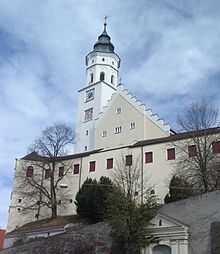Babenhausen, Bavaria
| Babenhausen | ||
|---|---|---|
| ||
 Babenhausen | ||
Location of Babenhausen within Unterallgäu district  | ||
| Coordinates: 48°9′N 10°15′E / 48.150°N 10.250°ECoordinates: 48°9′N 10°15′E / 48.150°N 10.250°E | ||
| Country | Germany | |
| State | Bavaria | |
| Admin. region | Schwaben | |
| District | Unterallgäu | |
| Municipal assoc. | Babenhausen | |
| Government | ||
| • Mayor | Theo Lehner (CSU) | |
| Area | ||
| • Total | 27.23 km2 (10.51 sq mi) | |
| Population (2013-12-31)[1] | ||
| • Total | 5,331 | |
| • Density | 200/km2 (510/sq mi) | |
| Time zone | CET/CEST (UTC+1/+2) | |
| Postal codes | 87727 | |
| Dialling codes | 08333 | |
| Vehicle registration | MN | |
| Website |
www.babenhausen -schwaben.de | |

Babenhausen is a municipality in the district of Unterallgäu in Bavaria, Germany. It is seat of a municipal association with Egg an der Günz, Kettershausen, Kirchhaslach, Oberschönegg and Winterrieden. The view of Babenhausen is dominated by the Fugger castle, a local attraction with its museum, and the Sankt Andreas Church. It is also seat of the Fuggers, a merchant family from Augsburg, which played an important role during the Middle Ages and the Renaissance.
History
Babenhausen was first mentioned in a document related to a boundary conflict in 1237. Municipal rights can be tracked back to 1315, and in 1337, Emperor Ludwig IV. awarded the city with the town charter of Ulm. Babenhausen finally lost its municipal rights after the Rottweiler verdict in 1466.
Before 1800, Babenhausen had been property of the Fugger becoming an Imperial Principality in 1803. As an effect of the Rheinbund act, the city was integrated into the Kingdom of Bavaria in 1806. Babenhausen was connected to the railway in 1894 (Illertalbahn), but local public transportation on this route was discontinued in 1964. The railway embankment now provides a bicycle path. Today the town is known as Markt Babenhausen.
References
- ↑ "Fortschreibung des Bevölkerungsstandes". Bayerisches Landesamt für Statistik und Datenverarbeitung (in German). 31 December 2013.
External links
| Wikimedia Commons has media related to Babenhausen (Swabia). |
- Fugger – Official Fugger family website with information on the museum in Babenhausen (in German)
